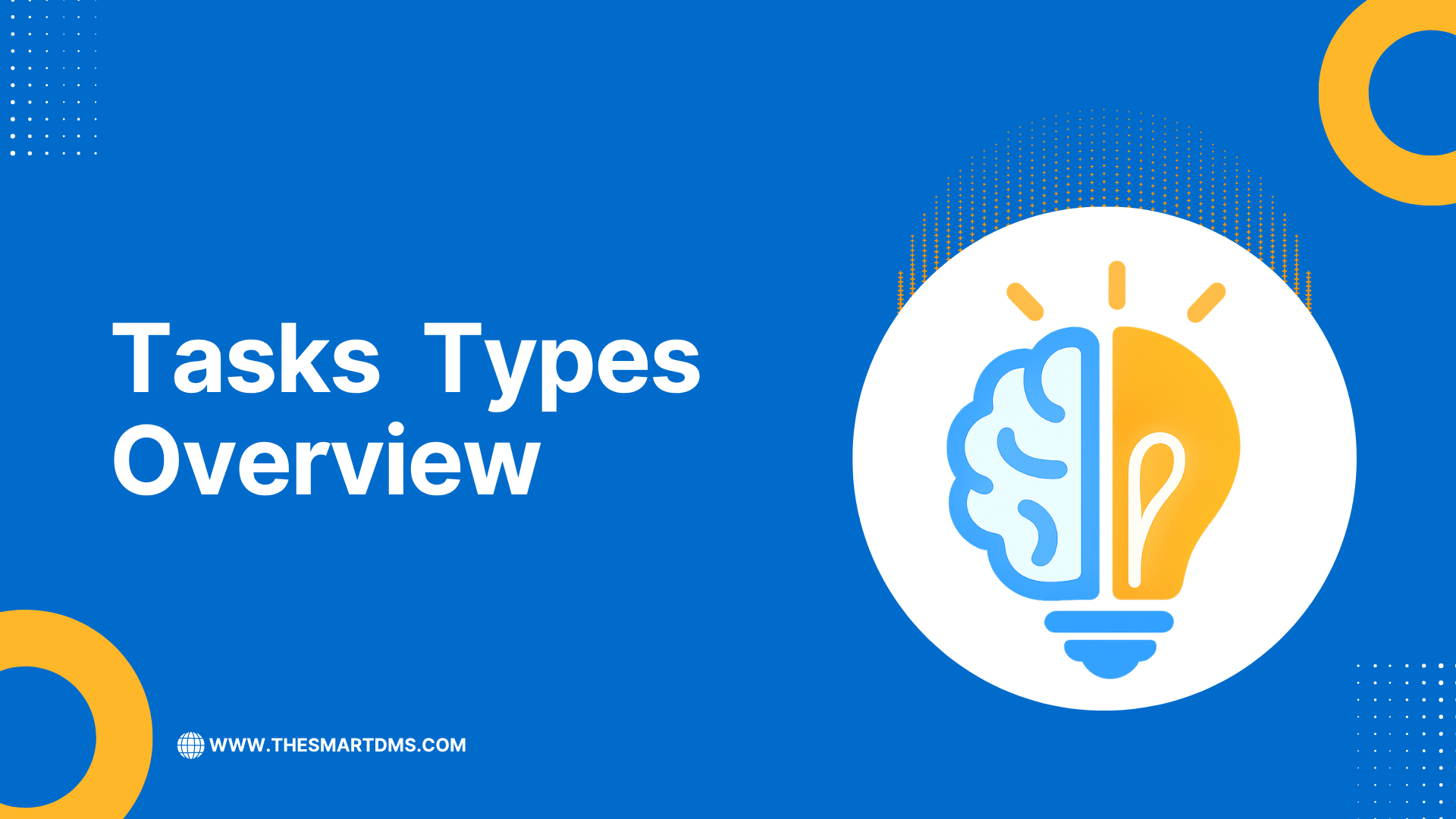
Task Types in DMS define the core structure, behavior, and rules associated with different categories of tasks across various modules (e.g., an ISP might have these task types – Installation, Maintenance, Relocation etc). Each Task Type can have specific settings that control how tasks are created, managed, and evaluated.
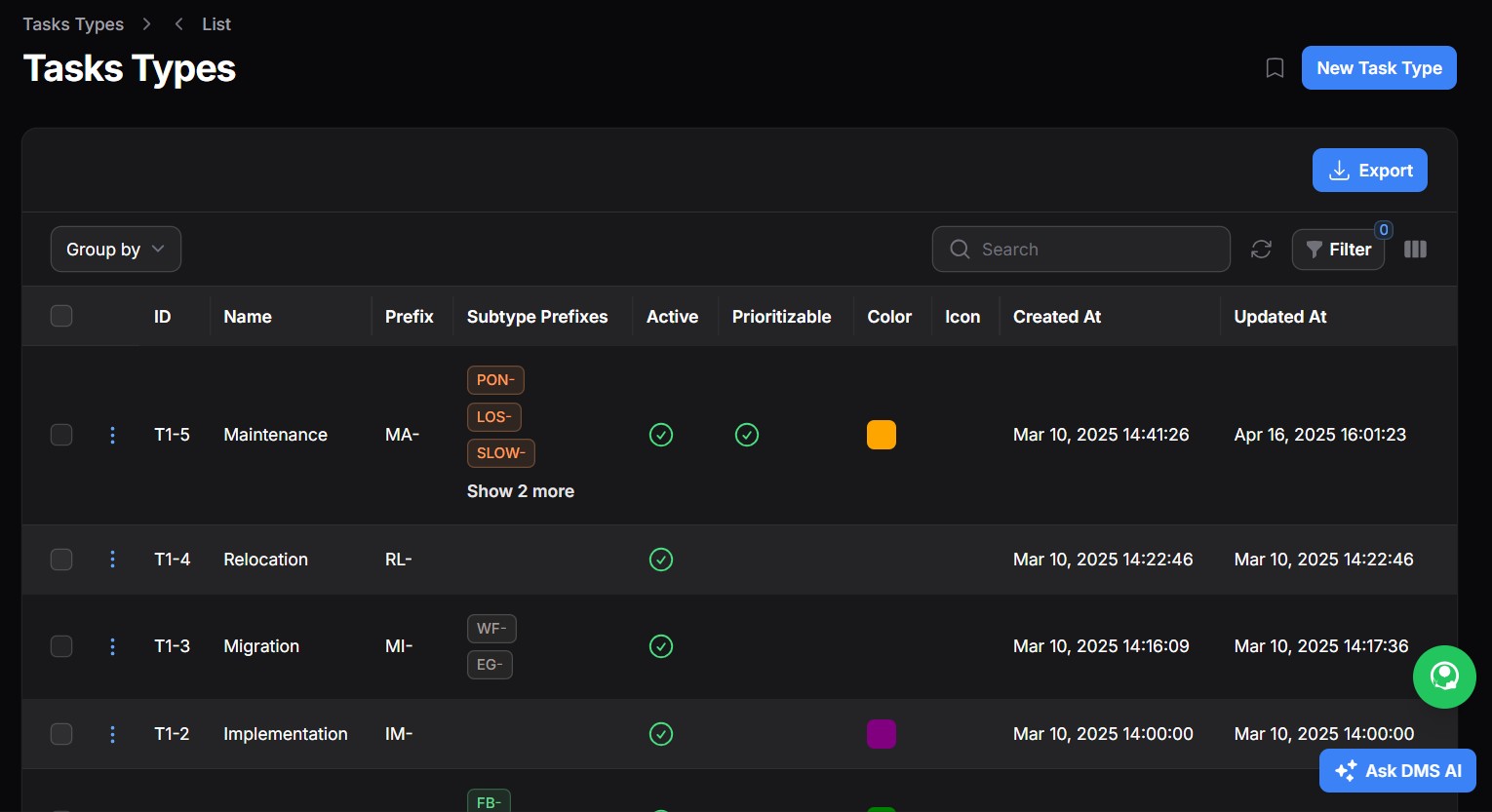
Task Types ensure:
- Clear categorization of work
- Role-based workflows for employees, marketers, and clients
- Accurate tracking of remuneration, commissions, and SLA compliance
- Automation of client charges and follow-up feedback
Key Elements of a Task Type #
1. Task Sub Types #
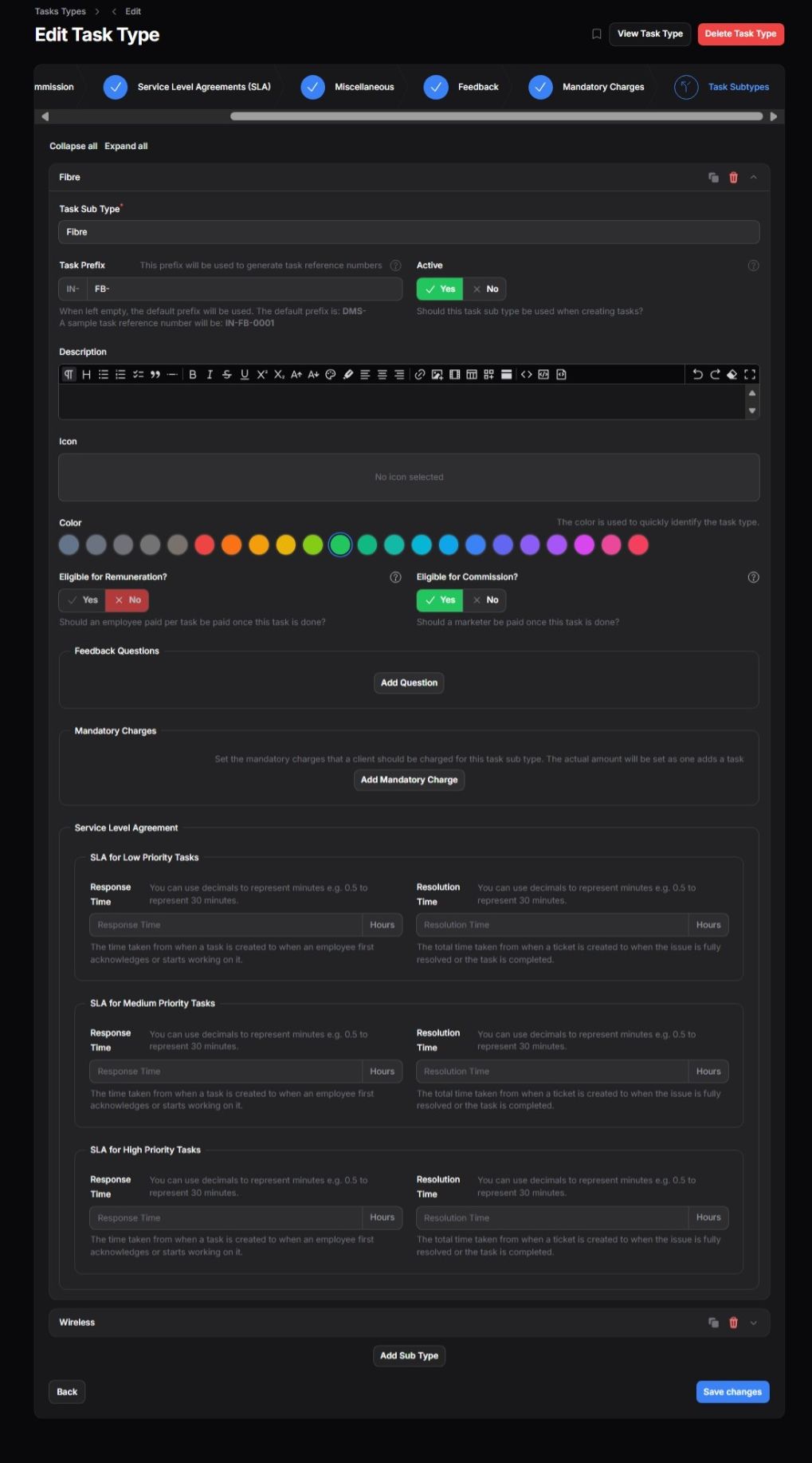
Each Task Type can have one or more Sub Types, allowing finer segmentation (e.g., for an ISP, under “Fibre”, you might have “Fibre – Home”, “Fibre – Business”).
- Prefix: Generates unique reference numbers (e.g.,
IN-FB-0001) - Active Toggle: Determines if the sub type is currently usable
- Color & Icon: Helps in quick visual identification
2. Remuneration & Commission #
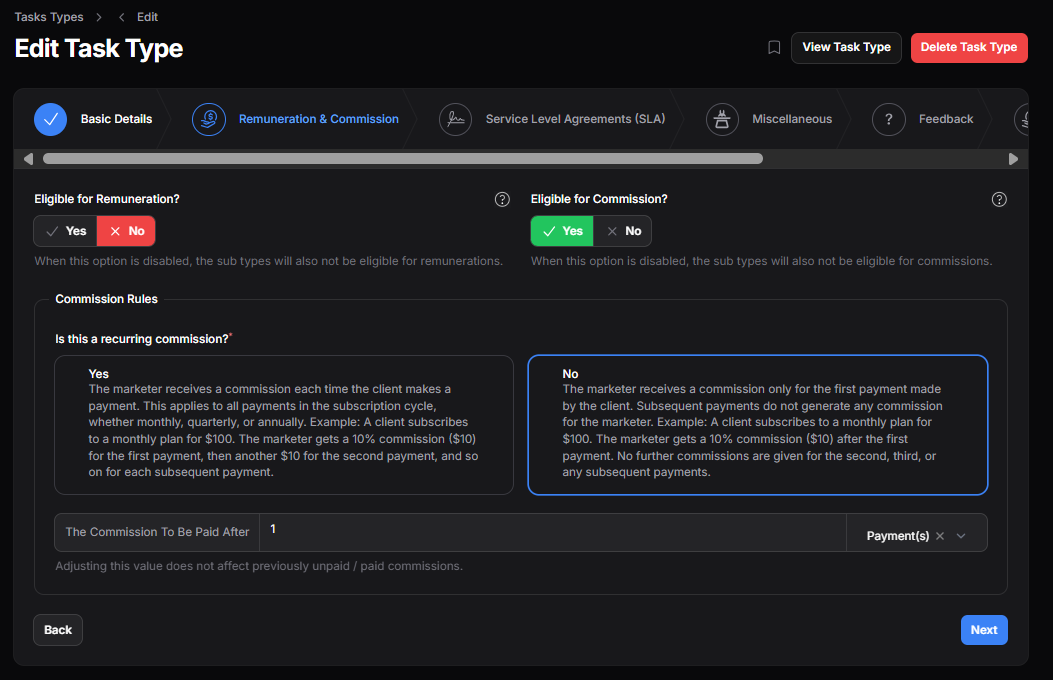
- Eligible for Remuneration: Enables payment to employees per completed task
- Eligible for Commission: Enables marketer commissions
- Recurring Commission Settings: Choose whether commissions apply only to the first payment or every cycle
3. Service Level Agreements (SLAs) #
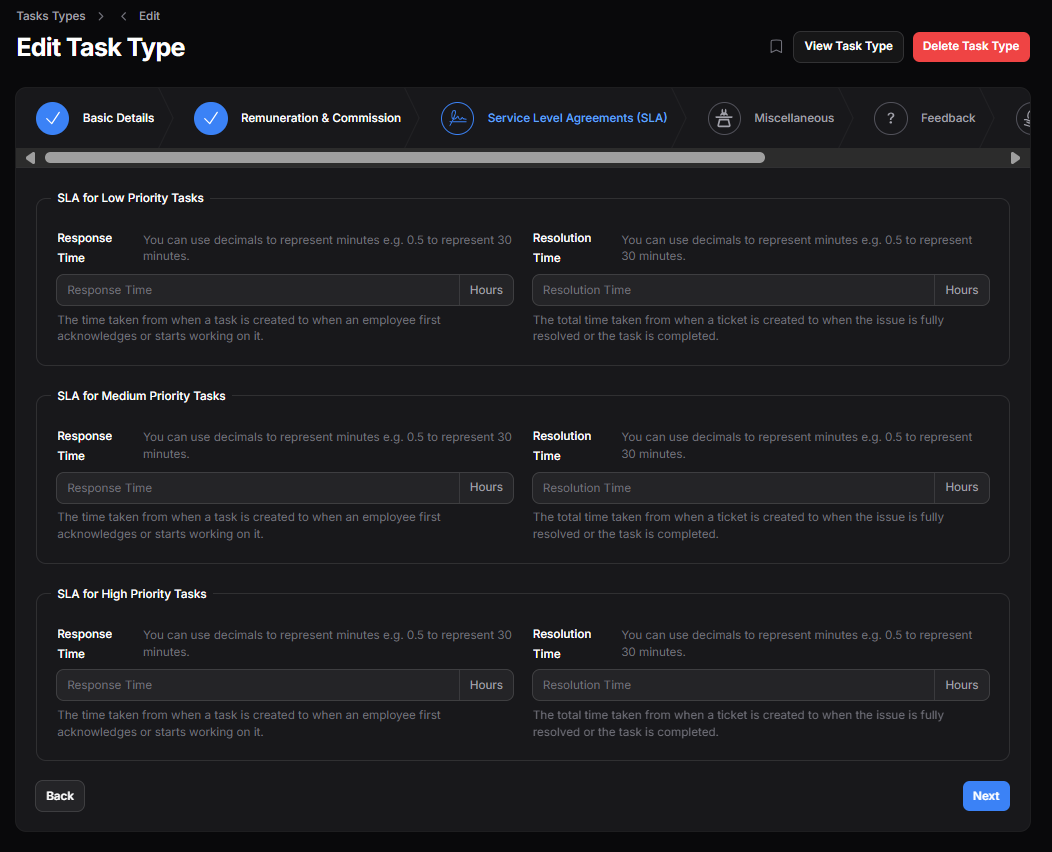
Each Task Type can define different SLA rules for:
- Low Priority
- Medium Priority
- High Priority
Each SLA defines:
- Response Time: How quickly an employee should acknowledge/start the task
- Resolution Time: How long it should take to complete the task
4. Mandatory Charges #
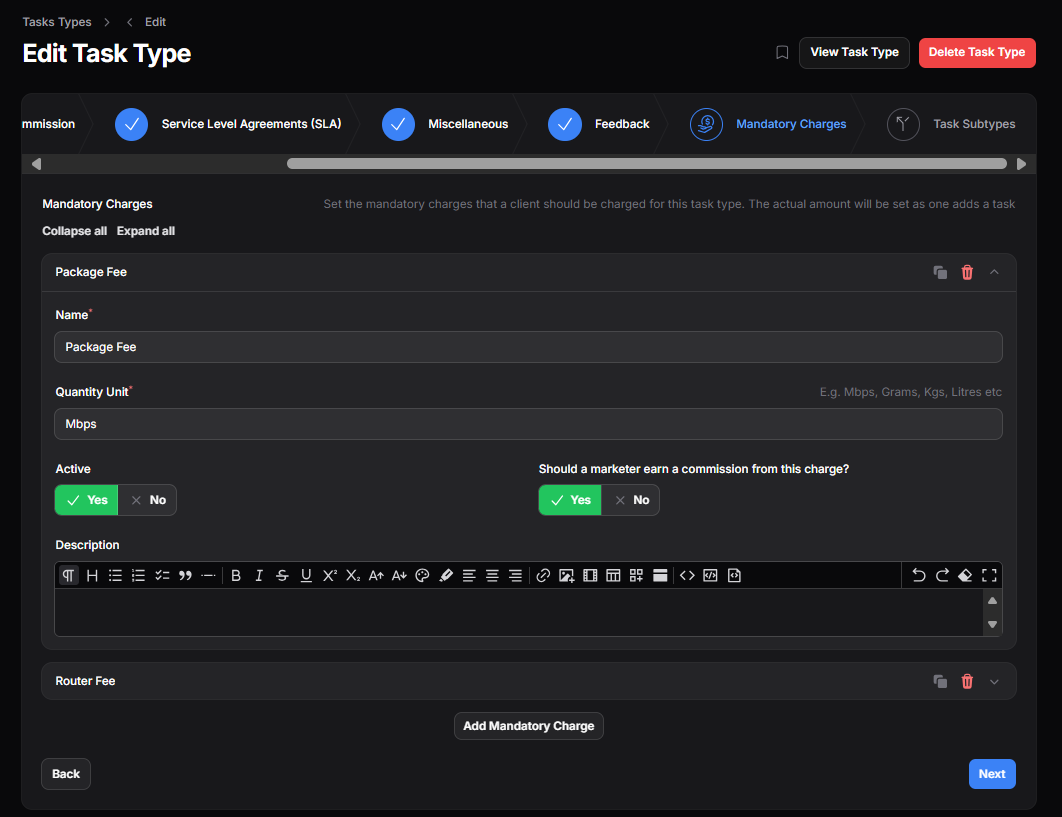
Task Types may include mandatory client charges such as:
- Package Fee (e.g., per Mbps)
- Router Fee
These charges:
- Can have defined quantity units (e.g., Mbps, Kgs, Units)
- Support marketer commissions
5. Feedback Questions #
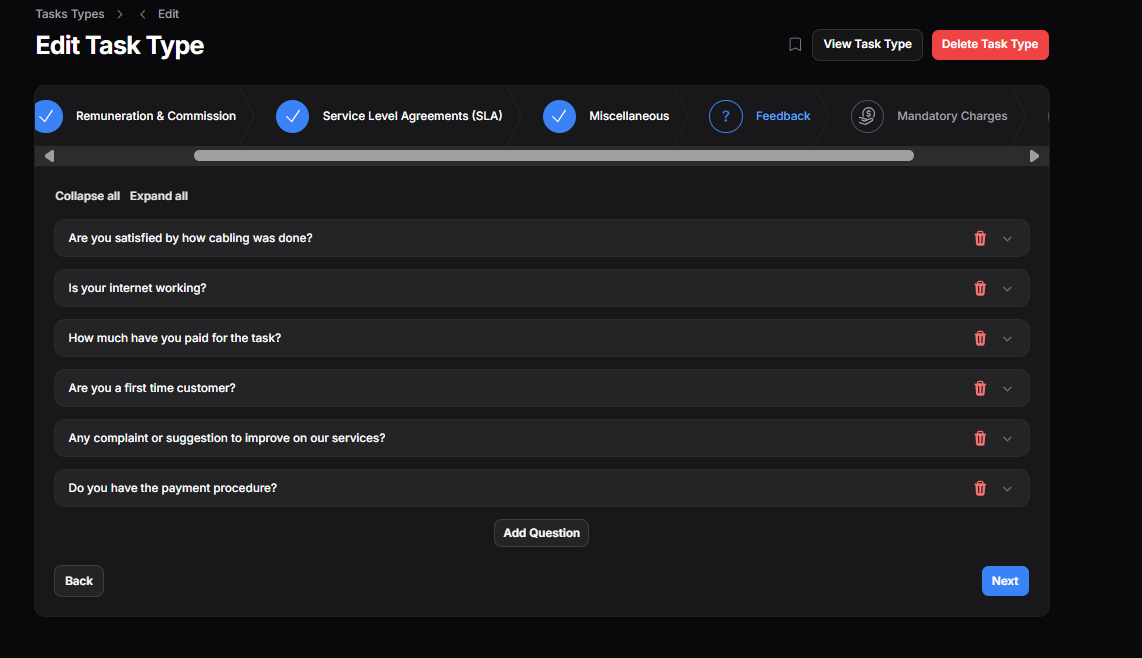
Add feedback forms specific to the task, such as:
- Is your internet working?
- Are you satisfied with the service?
- Any suggestions for improvement?
These are shown to the client after task completion.
6. Miscellaneous Options #
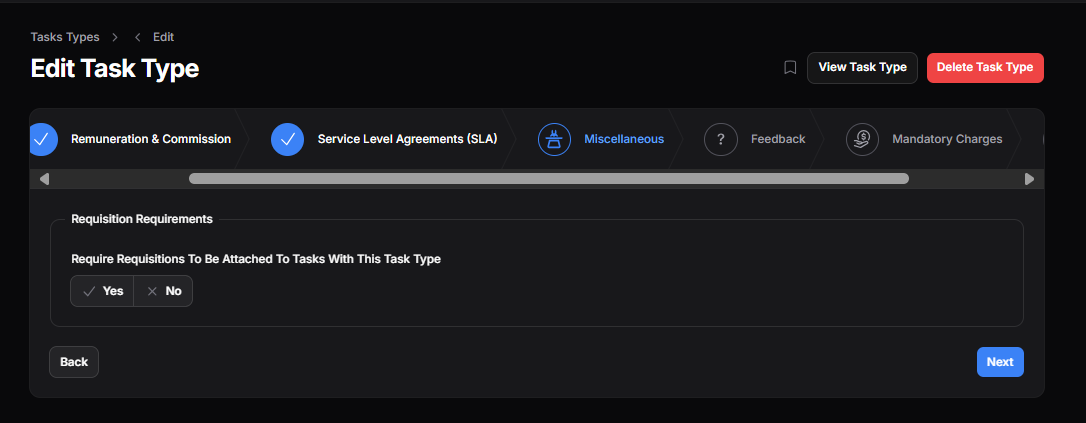
- Requisition Requirement: Mark if a task type requires a requisition to be attached before a task is completed.




